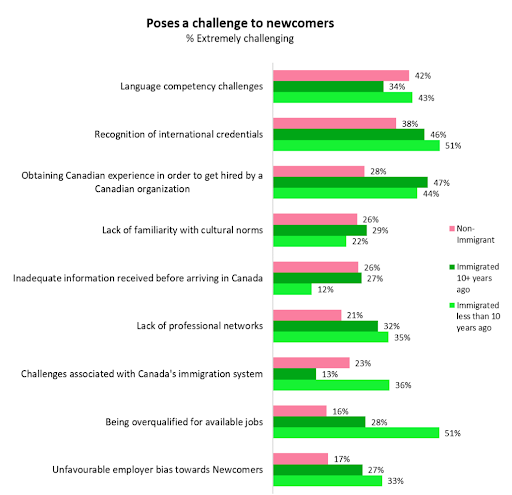Figure 1. Please indicate the extent to which you think each of the following poses a challenge when it comes to working in Canada as a Newcomer. We used a four-point scale from not at all challenging to extremely challenging. n=801
From newcomers' perspectives, key challenges related to job-hunting in Canada included difficulties with English proficiency, difficulties with recognition of foreign credentials, and delays in hearing back on the success of job applications.
Meanwhile, key workplace challenges cited in both phases of the research included newcomers feeling isolated due to lack of familiarity with workplace culture and being underemployed due to lack of recognition of their international credentials.
Suggestions from newcomers to combat the challenges faced included:
Better on-the-job training
More formalized check-ins from supervisors,
Facilitated opportunities for newcomers to receive support from their peers, such as a ‘buddy system’ or mentorship program
Additionally, newcomers praised solutions like Nova Scotia’s RN Bridging program, suggesting that more sectors need programs to help newcomers bridge their skills so they can contribute to the field in which they are trained.
Based on these results, there’s much employers can do to accommodate newcomers. Giving extra attention to newcomers’ growth and development when they first join the organization, and even simply lending a listening ear, can go a long way towards fostering dedicated employees. That is, supporting newcomer employees in upskilling or credentialing so that they are utilized to their full capabilities benefits both employees and employers. When it comes to programs that bridge foreign and Canadian credentials, it might seem more difficult to effect change. That said, we recommend that employers commit to supporting newcomers and investigate available funding for developing international credentialing programs through their professional associations or otherwise.
With these small steps, as well as continuing to create welcoming spaces for people from different communities, employers can do their part to support a smooth settlement journey for newcomers, and eventually expect to reap the benefits of a diverse workforce.




